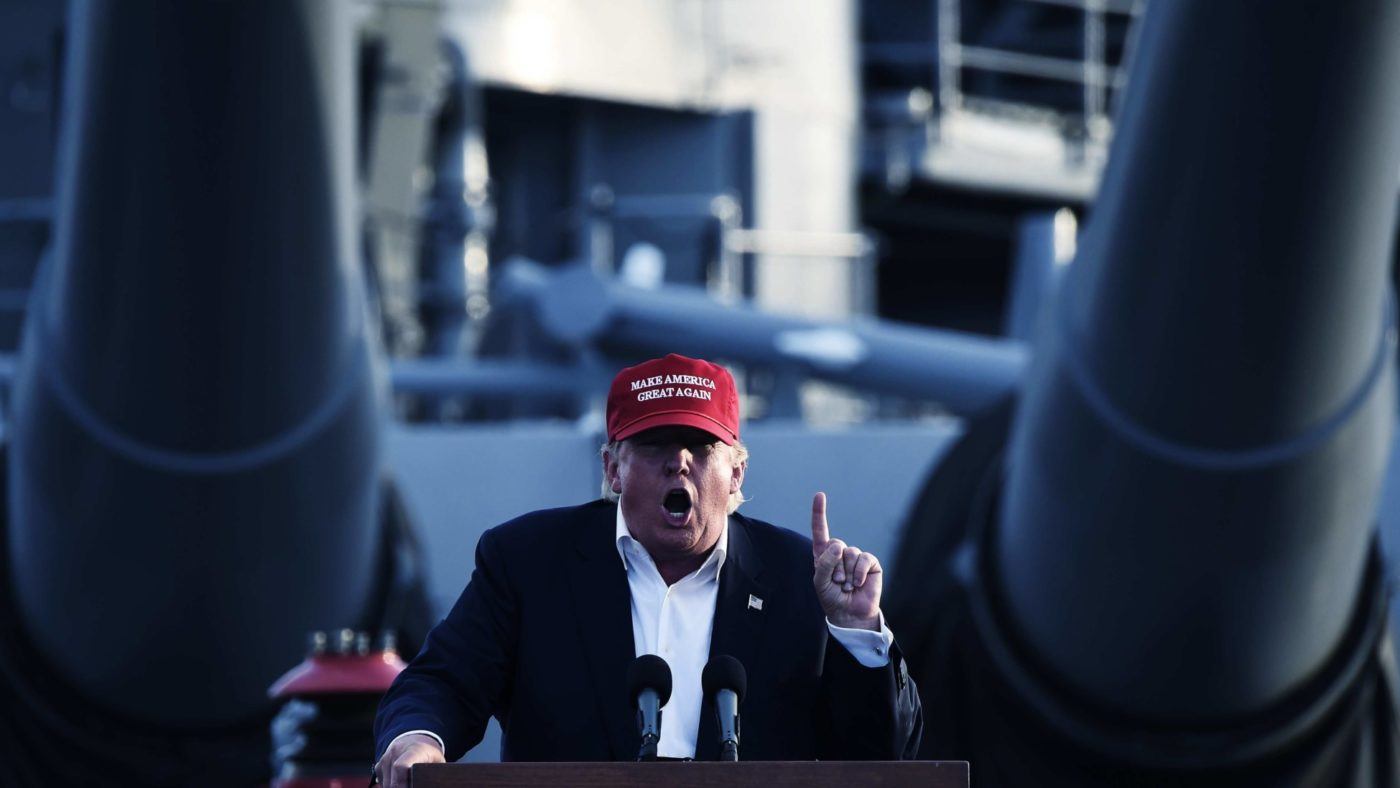On April 6, 1917, the United States entered the First World War. In doing so, it ended over a century of splendid isolation from the affairs of old Europe and started another century of its partial or total domination of the globe.
Almost exactly a century later, on January 20, 2017, Donald Trump entered the White House. And many people are worried that his presidency represents a similarly sharp break with the past: a transition from an America that engages with the world, to one that retreats into protectionism and isolationism.
But the most alarming aspect of this transition has gone largely unmentioned. It robs American diplomacy, and by extension the global order, of its sense of moral purpose.
For almost a century, America claimed – and believed – that what was good for the world was also good for America. Of course, the reverse was also true: what is good for America was axiomatically seen as good for the world. This was the common thread in the fight against a succession of totalitarian regimes: fascism first, Communism later, Islamic extremism most recently.
The belief that it was doing good was the basis of America’s sense of righteousness – but this sense of righteousness was also an instrument of policy. Without this sense of righteousness, why should countries comply with the US’s wishes? Simply because it is the strongest nation? And if the US gives up its claim to righteousness, then who defines what is right in international politics? Or does it become a pure game of strength?
In the early 1200s, at the time of the disastrous Fourth Crusade, the power of the Seljuk Turks was rising in the east and the ambition of the Italian maritime republics was growing in the west. But the Roman emperor in Constantinople was still the most powerful individual in the Mediterranean and beyond.
Instead of playing off East against West, a faction within the Byzantine empire called on the Venetians to help depose the emperor and settle a succession feud. The Venetians didn’t get paid – so they sacked Constantinople and kindled the real strategic demise of the empire.
It had been the same story in 410, when a disgruntled Roman mercenary, Alaric, claimed his back pay by sacking Rome and finishing the Empire in the western Mediterranean.
Of course, historical examples are to be taken with extreme caution. But in both cases, the societies concerned lost their sense of righteousness – and their unity. Politics became about grabbing spoils, with calamitous results.
When President Trump says “America first”, the hidden message is: “We know we are no longer first; we have to return there.” That kind of cut-throat approach can, and will, have all sorts of malign effects.
For example, Trump has given up on the TPP, a widespread agreement on free trade in Asia, which underpinned the previous administration’s strategy of a “pivot” to Asia. The new administration seems to want to replace such multilateralism with a new order of bilateral agreements, centred on America.
There is nothing wrong with trade deals per se. But if the global market is redefined by a crowd of bilateral treaties – especially if China, or Europe, start building their own networks of free trade treaties that exclude the US – the result will be a commercial space that is hell for normal traders and paradise for lawyers. Without common WTO standards, goods will stop flowing in ordinary ways, they will have to navigate the new thicket of tariffs and prohibitions.
This is not to say that, in the short term, the “America first” idea cannot be sustained – or that it cannot be an engine of global growth. Say the US follows through on its promises of massive infrastructure investment, and does manage to bring home some of its old industries.
Thanks to the way in which robots are cutting labour costs, and Trump’s promised tax reductions, these might actually become competitive again – if producing in America can become as cheap or cheaper than producing in Bangladesh or Vietnam. This could lead to a reindustrialisation of the US, with capital from all over the world competing to finance the new business opportunities.
But for this to work, it has to happen fast. If infrastructure spending and reindustrialisation are to be sustainable in the medium and long run, more expenditure on education is needed, to prepare people for these new jobs – and that in turn requires more tax money. Given the tax breaks promised by Trump, this can happen only if business really does boom.
Moreover, Trump will also need social unity at home – but he came to the presidency by being historically divisive. And in the meantime, the ideological damage produced by his “America first” approach would linger on.
Under such circumstances, it would only be natural to go looking for a scapegoat – and China could be the ideal straw man for the Trump administration. Especially since its many festering arguments with its neighbours mean that enable might be able to forge a political consensus around China-bashing, even as the old commercial consensus is breaking.
There is, of course, a chance that this all works out for the best. China, in the face of this hostility, might seek global goodwill – or greater economic muscle – by embarking on the massive economic and political reforms it has long needed.
But it is also extremely easy to see how, in a world deprived of America’s moral and political leadership, things could also go terribly wrong.


